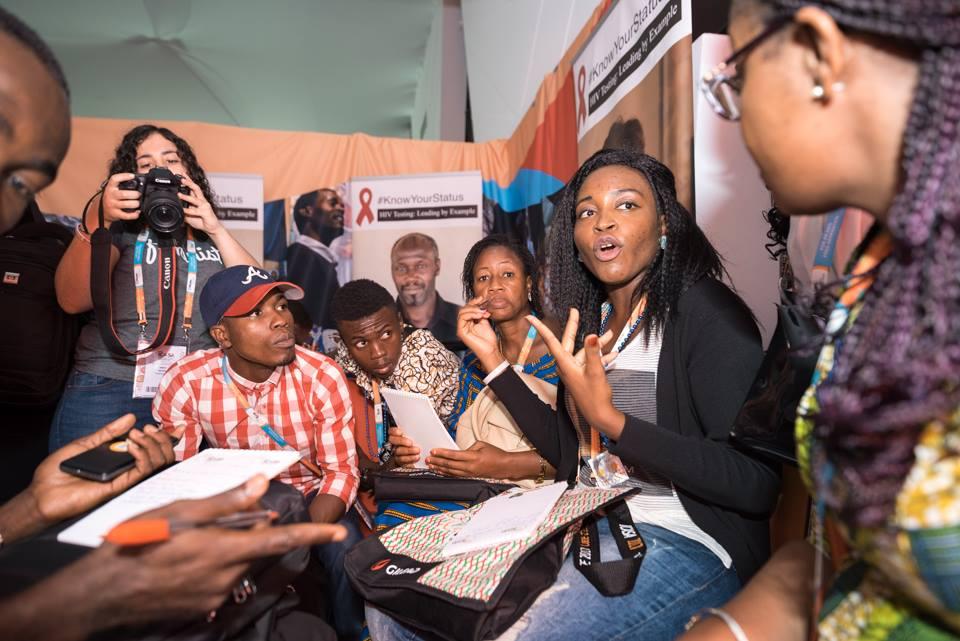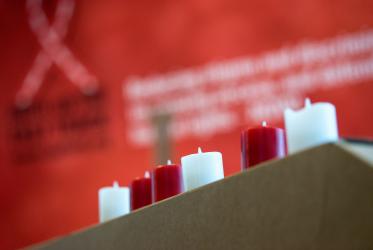By Albin Hillert*
Many questions arise when looking at how AIDS can be eliminated as a public health threat.
“How can religious communities become more inclusive, learn how not to ask the wrong questions, but offer space for conversation and sharing?
“How can we learn from promising practices among faith communities, so that HIV can be addressed openly, so that AIDS can be eliminated as a public health threat?”
The questions are numerous and visitors diverse as the World Council of Churches (WCC) hosts a Faith Networking Zone at the 19th International Conference on AIDS and STIs (sexually transmitted infections) in Africa, ICASA 2017, on 4-8 December.
ICASA gathers thousands of researchers, medical professionals, academics, faith-based organizations as well as activists and other individuals from around Africa and beyond in Côte d'Ivoire.
They have the common goal of overcoming the HIV epidemic.
The Faith Networking Zone offers a lively, engaging and inspiring space. It highlights the important role of faith-based organizations in the global response to HIV, through workshops, prayers and time for sharing.
“If the churches can offer open discussion, and the pastor is speaking, this can make an impact,” says a youth person attending one of the workshops in the Faith Networking Zone.
Targetting key populations
“Just like we target key populations in our campaigns, we need to target religious leaders, so they can help address HIV and AIDS in other ways than seeing it as a moral issue,” adds another.
She says, “The cross has for me always been a powerful symbol,” says a third participant. “In my journey of faith, it has come to symbolize not only the glory of God, but also a great many crossroads, of suffering, persecution, demonization that I can see in my life, how sometimes life has been taken away from me.
“We should acknowledge that we are all connected,” reflects Francesca Merico, coordinator of the WCC-Ecumenical Advocacy Alliance HIV Campaign. Religious communities can make such a huge contribution to work towards overcoming HIV.”
She adds, “If we can see it as a blessing, that we have this opportunity to listen, learn and share.”
Space for challenging questions
“This ICASA has seen interest and mobilization around children, adolescents and HIV, in a way we have never seen before,” says Merico. “This is mainly due to the collegial work of several organizations around the ‘Start Free, Stay Free, AIDS Free,’" framework.
Yet challenges abound: the gender gap, the generational gap, the gap between those in the centre and those at the margins of society.
The international community sets out to reinforce efforts on access to testing and treatment for children and adolescents in the next few years.
Yet many issues remain to be addressed in a holistic approach to the HIV epidemic, and the stigma that remains against and among many groups.
“One of the great challenges,” says Toni Kruger-Ayebazibwe from the Global Interfaith Network for People of all Sexes, Sexual Orientations, Gender Identities and Expressions, “is to get faith communities to engage also in the most difficult questions, rather than choose to live in silence or in condemnation.
“We know from our experiences that one of the most powerful tools we have is people’s personal stories, of their journeys of faith.
“If we can get faith communities to listen, and continue to engage in who we really are, this can take us a long way in changing attitudes, reducing stigma, and letting people be included,” she says.
Rev. Pauline Wanjiru Njiru, eastern Africa regional coordinator for the WCC Ecumenical HIV and AIDS Initiatives and Advocacy (WCC-EHAIA) continues, “In many ways, we have seen that we can start the conversation at any point, particularly with young people.
“Rather than setting a special time for talking about difficult issues, we should focus on getting the conversation going. The point is not where it begins, but that it goes on, so we can all learn how to move forward together.
“These days are very exciting and valuable for us,” concludes Francesca Merico. “There is a lot of recognition of the role that faith-based communities can play in the HIV response and on paediatric HIV,” she says.
“As we continue from here, we should ensure that faith communities do not work in a fragmented way. Instead, our work should be harmonized, express the special identity and contributions of faith-based organizations, and count as a contribution to the AIDS strategies of governments and intergovernmental organizations,” explains Merico.
*Albin Hillert is communication officer at the World Council of Churches
Learn more about the ICASA 2017 Faith Networking Zone
WCC Ecumenical HIV and AIDS Initiatives and Advocacy (WCC-EHAIA)








